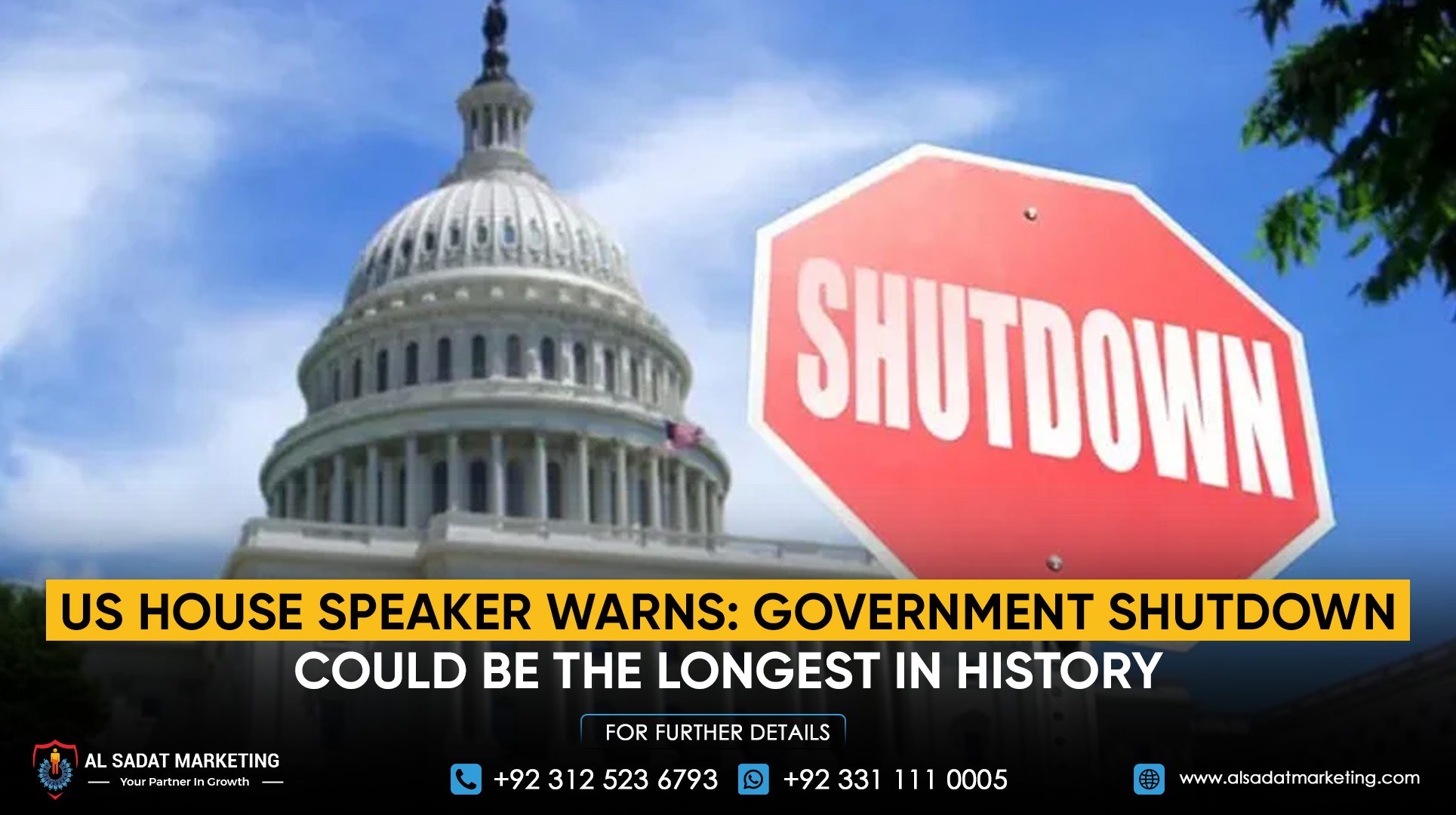US House Speaker Mike Johnson has warned that the ongoing government shutdown could soon become the longest in the country’s history, as Republicans and Democrats fail to reach an agreement over healthcare funding.
Speaking to reporters, Johnson said he would not engage in any negotiations with Democrats until they dropped their demands related to healthcare subsidies. He accused them of holding up the process with what he described as “unreasonable policy demands.”
The shutdown, which has already halted several federal operations, continues to affect key services across the country. Both political parties are blaming each other for the crisis, which is now entering a critical phase.
Former President Donald Trump has backed Johnson’s position, calling for an end to what he referred to as “Democrat programmes.” He vowed that the Republican Party would not compromise on its stance unless Democrats removed healthcare subsidy extensions from the discussions.
Earlier this year, the Republican-led House passed a tax and spending bill that could leave millions of Americans without healthcare coverage. Democrats are pushing to extend subsidies under the Affordable Care Act to prevent this outcome. However, Republicans argue that such discussions should happen only after the government is reopened.
The effects of the shutdown are spreading. The Smithsonian Institution, which runs several museums, libraries, and the National Zoo in Washington, DC, has closed all 21 of its facilities due to a lack of funds. The Smithsonian relies heavily on federal funding and announced that it could no longer maintain operations during the shutdown.
The US military has also confirmed it is redirecting unspent research and development funds to ensure service members continue to receive pay.
Public frustration continues to grow as the shutdown drags on. Recent polls show that voters are divided on who is to blame, with many pointing fingers equally at both political parties and former President Trump.
Vice President JD Vance has warned that deeper spending cuts could follow if the stalemate continues. Meanwhile, government employee unions are preparing to challenge mass layoffs ordered by the Trump administration during the ongoing crisis.










